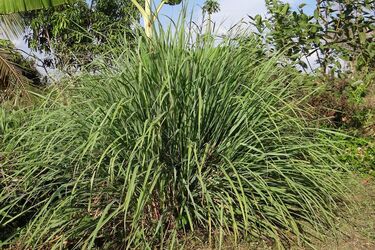Pros and cons of growing lemongrass in the garden

Lemongrass has natural properties to repel pests. UAportal found out how important it is to understand both positive and negative factors before deciding to grow this plant.
Pros
A natural mosquito repellent
Lemongrass is an effective mosquito repellent. This can create a more pleasant outdoor environment for people.
Aesthetic appeal
Lemongrass adds a touch of beauty to an area with its tall, thin green stems and citrusy scent.
Culinary use
In addition to decorative purposes, lemongrass can be used in cooking, adding a savory flavor to dishes.
Cons
Invasive growth
Lemongrass tends to spread rapidly and can become invasive if not properly controlled. Its rapid growth and ability to take over other plants can be a disadvantage to maintaining a balanced and well-groomed appearance of the site.
High level of care
Caring for lemongrass requires effort and attention, as it needs regular watering, pruning, and dividing to prevent overgrowth. This can be time-consuming for some gardeners who prefer unpretentious plants.
Environmental conditions
Lemongrass thrives in warm and sunny climates, but may have difficulty growing in cooler regions.
If you want to get the latest news about the war and events in Ukraine, subscribe to our Telegram channel!
